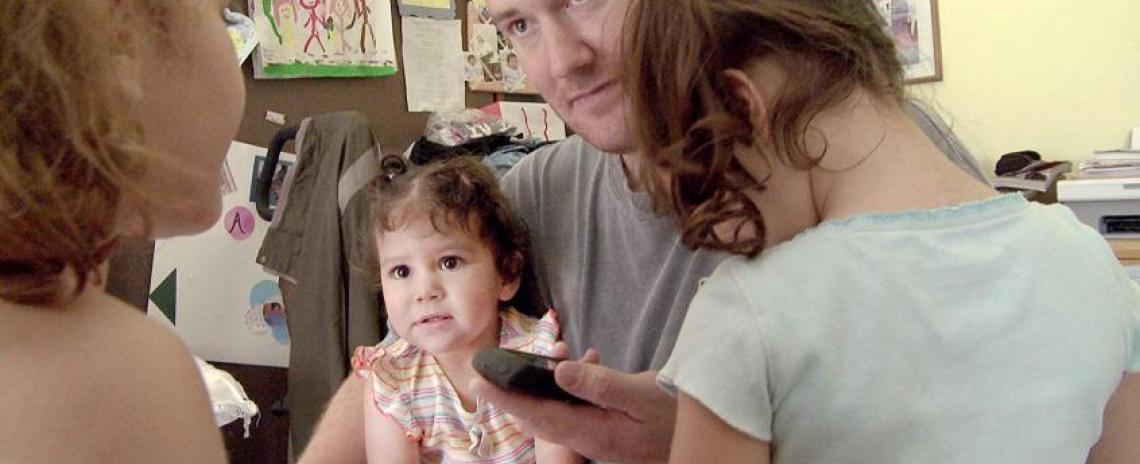Throughout the 27th Annual Whitaker St. Louis International Film Festival (SLIFF), the writers at the Lens will be spotlighting their favorite narrative and documentary films on this year's festival schedule. Each day, our critics will discuss can't-miss festival highlights, foreign gems that have already made an international splash, and smaller cinematic teasures that might have overwise been overlooked – just in time for you to snap up tickets.
Rudy Valdez was working as a New York-based documentary cinematographer when he got the call: His older sister, Cynthia Shank, was being sentenced to 15 years in federal prison. “She went to prison because we’re poor,” Valdez has said in interviews. Indeed, class plays a major role in the specific case of Shank; however, her circumstances also puts a spotlight on a under-reported aspect of the modern American criminal justice system. For over four decades, there has been a rapid increase in women’s incarceration, a phenomenon that largely comes down to policy and practice changes within law enforcement, primarily with respect to the War on Drugs. Rudy Valdez’ new film, The Sentence, puts a face on a national crisis that has languished on the outskirts of public discourse for far too long.
On May 9, 2002, Shank’s boyfriend, Alex Humphry was murdered outside their Michigan home. When police searched the house they found over 40 pounds of cocaine, a cache of illegal firearms, and a king’s ransom in marijuana, packaged to sell. It was the biggest drug bust in the city’s history, and with no perpetrator left alive to prosecute, the authorities threatened Shank with a 13-year sentence, but Shank resisted: “When I first started dating Alex, he didn’t do these drug dealings.” She was insistent that she herself didn’t buy drugs, let alone deal them.
At the time, Shank’s denials were sufficient for the state and federal courts to ultimately drop the charges. However, six years later, after Shank had married and given birth to three children, a federal investigation led to her being charged with four counts of conspiracy. Again, she denied the accusations, this time alleging that she was a victim of domestic abuse; she couldn’t possibly have left Humphry without risking her life. However, under current U.S. drug laws, even individuals in the most peripheral roles relating to narcotics — such as being the abused girlfriend of a highly dangerous drug trafficker — can be held accountable for the entire quantity of drugs seized in connection with a conspiracy. Due to minimum sentencing requirements, Shank was convicted to spend 15 years in prison.
After her sentencing in 2008, Rudy Valdez began making frequent trips home to New York to be with his sister’s family, their parents, and other siblings. In what starts as a personal project, meant for his sister’s eyes only, Valdez records everything that occurs on these trips. At some point, in the 10-plus years he spent capturing intimate family exchanges, Valdez evidently realized that there was a documentary feature somewhere in the hundreds of hours of footage. Audiences are lucky that he did so, as The Sentence offers rare emotional insights into how grief manifests within a family.
At one point in the film, Valdez expresses his doubts about the project. “I don’t know what it is about being behind the camera,” he says, “...sometimes I feel like it’s a coward’s way out.” This is far from the case. The Sentence is the sort of film that can interview a 6-year-old about her newly incarcerated mother and transform it into a revelatory act of courage. The documentary space that Valdez creates for his family affords them the opportunity to “perform” their feelings for each other. Through these moments, Valdez’s film taps into a rare empathetic impulse, primal in nature. It’s a precious human story at the heart of a sociological disaster that spans decades, a tale that only Valdez and his family could tell. That fact alone makes The Sentence worth seeing.
The Sentence screens Friday, Nov. 9 at 2:00 p.m. at the Missouri History Museum. The event is free and open to the public. Tila Neguse, coordinator of The Divided City Initiative at Washington University’s Center for the Humanities, will be hosting an introduction and post-film discussion.


